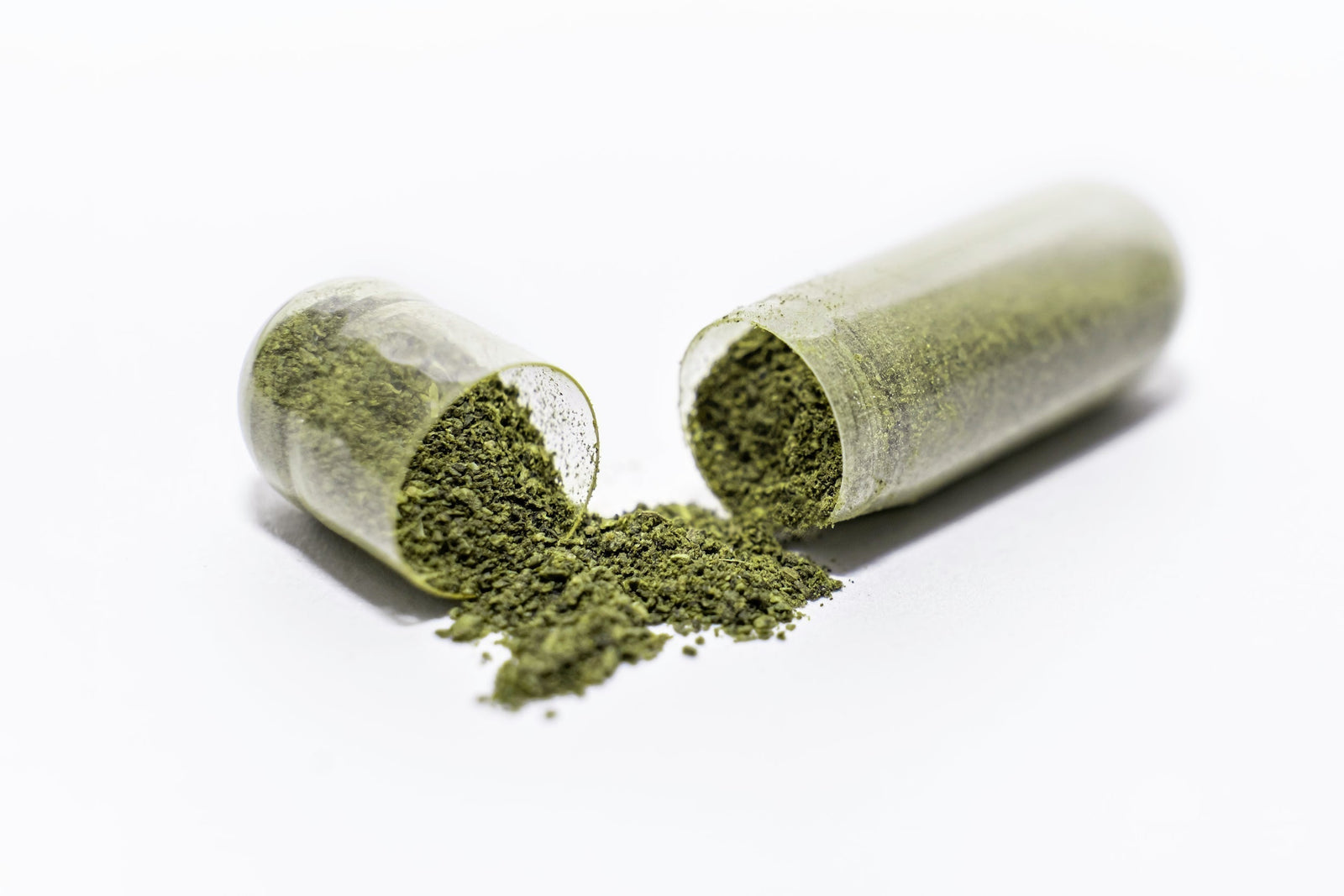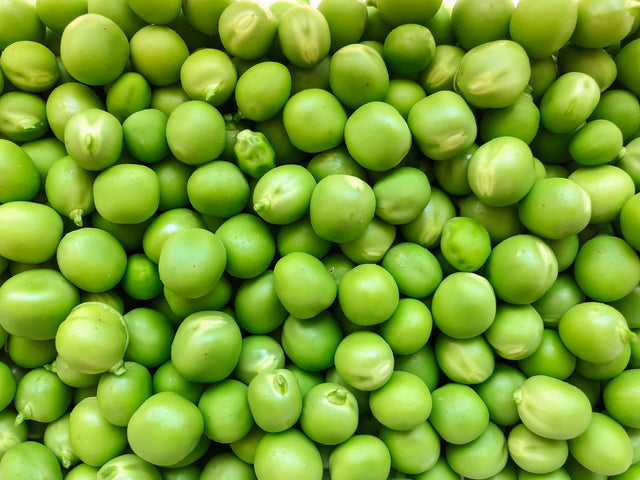In the world of performance nutrition and cellular health, two names consistently rise to the top: Quercetin and CoQ10. Both are powerhouse antioxidants backed by science and praised for their ability to reduce inflammation, fight oxidative stress, and support long-term health. But despite their similar reputations, they work in fundamentally different ways—and offer distinctly unique benefits.
Whether you're looking to optimize heart health, reduce chronic fatigue, support your immune system, or simply age more gracefully, understanding the differences between CoQ10 and Quercetin is critical. In this guide, we’ll break down how each works, who should take them, where they overlap, and why stacking them together could be one of the smartest moves for your health and performance.
We’re going to talk about the differences and similarities between Quercetin vs. CoQ10.
CoQ10 vs Quercetin: What’s the Difference, and Should You Take Both?
What Is CoQ10?
Coenzyme Q10 (CoQ10), also known as ubiquinone, is a fat-soluble, vitamin-like compound naturally present in the body and critical for energy production. It functions as a cofactor in the mitochondrial electron transport chain, where it assists in the generation of adenosine triphosphate (ATP)—the primary energy currency of cells.
“CoQ10 is essential for mitochondrial bioenergetics, with ATP production depending heavily on its availability.” — Littarru & Tiano, Mitochondrion
Studies have shown that patients with heart conditions often exhibit lower CoQ10 levels. Supplementation may support cardiovascular function, improve energy levels, and enhance exercise performance.
“In patients with congestive heart failure, CoQ10 supplementation improved symptoms and reduced major adverse cardiovascular events.” — Mortensen et al., JACC: Heart Failure
Clinical trials also suggest that CoQ10 may help athletes improve endurance by enhancing mitochondrial energy output and reducing exercise-induced oxidative stress.
Here is an expanded, research-backed section covering how CoQ10 works, its benefits, mechanisms of action, and who should consider supplementing with it—all formatted for clarity and SEO optimization with inline citations.
How CoQ10 Works: Mechanisms of Action
Coenzyme Q10 (CoQ10) is a naturally occurring compound found in every cell of the human body, particularly in organs with high energy demands such as the heart, kidneys, liver, and skeletal muscles. It plays two essential roles:
-
Bioenergetics (ATP Production):
CoQ10 is a vital component of the mitochondrial electron transport chain, where it facilitates the transfer of electrons between complexes I/II and III, enabling the synthesis of adenosine triphosphate (ATP)—the body’s primary energy molecule.“CoQ10 acts as a mobile electron carrier within the inner mitochondrial membrane and is critical for oxidative phosphorylation and ATP synthesis.” — Littarru & Tiano, Mitochondrion
-
Antioxidant Defense:
CoQ10 exists in both oxidized (ubiquinone) and reduced (ubiquinol) forms, allowing it to neutralize reactive oxygen species (ROS) and regenerate other antioxidants like vitamin E.“CoQ10 is one of the few lipid-soluble antioxidants synthesized endogenously, making it essential for protecting mitochondrial membranes from oxidative damage.” — Bentinger et al., Biochimica et Biophysica Acta
CoQ10 Benefits: What the Science Says
1. Supports Heart Health
CoQ10 is perhaps best known for its cardiovascular benefits. Patients with conditions like heart failure, hypertension, or angina often show lower plasma levels of CoQ10.
-
Improves symptoms of congestive heart failure
-
Enhances ejection fraction and exercise capacity
-
Reduces incidence of major adverse cardiovascular events (MACE)
“CoQ10 significantly reduced cardiovascular mortality in a randomized trial of patients with moderate-to-severe heart failure.” — Mortensen et al., JACC: Heart Failure
2. Improves Energy and Reduces Fatigue
Since ATP is the currency of cellular energy, CoQ10 supplementation has been shown to reduce fatigue in both healthy individuals and those with chronic conditions such as fibromyalgia and chronic fatigue syndrome.
“Supplementation with CoQ10 significantly improved fatigue levels in patients with chronic fatigue syndrome.” — Castro-Marrero et al., Nutrition
3. Enhances Athletic Performance
CoQ10 improves mitochondrial function, which can boost VO₂ max, aerobic capacity, and post-exercise recovery in endurance athletes.
“CoQ10 supplementation improved exercise performance in trained individuals by enhancing mitochondrial bioenergetics.” — Cooke et al., Journal of the International Society of Sports Nutrition
4. May Help Lower Blood Pressure
Meta-analyses indicate that CoQ10 supplementation may modestly reduce both systolic and diastolic blood pressure, especially in hypertensive individuals.
“CoQ10 supplementation resulted in a mean systolic BP reduction of 11 mm Hg and diastolic BP reduction of 7 mm Hg.” — Rosenfeldt et al., Journal of Human Hypertension
5. Protects Brain and Cognitive Health
Oxidative stress and mitochondrial dysfunction are implicated in neurodegenerative diseases like Parkinson’s and Alzheimer’s. CoQ10 may help slow cognitive decline and reduce symptoms.
“In early Parkinson’s patients, CoQ10 slowed functional decline in a dose-dependent manner.” — Shults et al., Archives of Neurology
6. May Improve Fertility
In both men and women, CoQ10 supports mitochondrial energy in reproductive cells and helps protect sperm and eggs from oxidative damage.
“CoQ10 improved sperm motility and density in men with idiopathic infertility.” — Safarinejad et al., Journal of Urology
7. Reduces Migraine Frequency
CoQ10 may help reduce the frequency, severity, and duration of migraines by improving mitochondrial dysfunction thought to be involved in their pathogenesis.
“CoQ10 was superior to placebo in reducing migraine attack frequency and number of headache days.” — Sándor et al., Neurology
Who Should Consider CoQ10 Supplementation?
1. Individuals With Cardiovascular Disease
Including:
-
Congestive heart failure
-
Hypertension
-
Atherosclerosis
-
Statin users (CoQ10 can be depleted by statin drugs)
2. Athletes and Active Individuals
To improve:
-
Energy output
-
Aerobic performance
-
Recovery from exercise-induced oxidative stress
3. Older Adults
Aging naturally decreases CoQ10 levels, leading to:
-
Lower energy
-
Increased oxidative stress
-
Cognitive decline
4. People With Neurological Conditions
Especially those with:
-
Parkinson’s disease
-
Alzheimer’s disease
-
Migraines
5. Individuals with Fertility Challenges
To enhance:
-
Sperm health in men
-
Egg quality in women
Dosage and Supplementation
Typical CoQ10 doses range from 100 to 300 mg/day, though some therapeutic uses go as high as 600 mg/day in clinical trials. It's best absorbed with dietary fat, and ubiquinol (the reduced form) may offer better bioavailability than ubiquinone.
What Is Quercetin? Benefits, How It Works, and Who Should Take It
What Is Quercetin?
Quercetin is a plant-derived polyphenol and one of the most abundant flavonoids in the human diet. It belongs to a class of compounds known as flavonols, a subtype of flavonoids, and is naturally found in fruits, vegetables, seeds, tea, and wine.
Its antioxidant, anti-inflammatory, antiviral, and senolytic properties have made it the subject of numerous clinical studies in areas such as immune health, cardiovascular disease, exercise performance, and allergy relief.
“Quercetin is one of the most potent dietary antioxidants, modulating inflammation, immunity, and oxidative stress at the cellular level.” — Li et al., Nutrients
How Quercetin Works: Mechanisms of Action
Quercetin exerts its physiological effects through several core mechanisms:
1. Antioxidant Protection
Quercetin directly scavenges reactive oxygen species (ROS), including superoxide anions and hydroxyl radicals, preventing oxidative damage to lipids, proteins, and DNA.
“Quercetin neutralizes free radicals by donating electrons and inhibits lipid peroxidation, reducing cellular oxidative stress.” — Boots et al., European Journal of Pharmacology
2. Anti-Inflammatory Pathway Modulation
Quercetin inhibits NF-κB and COX-2 pathways, which are key regulators of inflammation. This action helps reduce the production of pro-inflammatory cytokines such as TNF-α and IL-6.
“By inhibiting inflammatory pathways, quercetin helps modulate immune responses and chronic low-grade inflammation.” — Rogerio et al., Inflammation Research
3. Senolytic Activity
Quercetin acts as a senolytic, meaning it helps eliminate senescent cells—damaged cells that no longer divide but still release harmful inflammatory signals.
“Quercetin, especially when paired with dasatinib, selectively clears senescent cells, improving tissue homeostasis and delaying aging-related decline.” — Xu et al., Aging Cell
4. Immune Modulation
Quercetin supports innate and adaptive immunity by regulating mast cells, histamine release, and immune cell signaling, making it useful for allergy management and viral defense.
“Quercetin stabilizes mast cells and reduces histamine release, explaining its efficacy in allergic and respiratory conditions.” — Rogerio et al., Inflammation Research
Quercetin Benefits: Research-Backed Health Applications
1. Reduces Inflammation
Chronic inflammation is at the root of many diseases. Quercetin suppresses inflammation at the cellular level by downregulating pro-inflammatory enzymes and cytokines.
“Quercetin demonstrated significant anti-inflammatory effects in both in vitro and in vivo models.” — Li et al., Nutrients
2. Supports Heart Health
Quercetin improves endothelial function, reduces blood pressure, and prevents LDL cholesterol oxidation—key steps in the development of atherosclerosis.
“Daily supplementation with 500 mg of quercetin significantly reduced systolic blood pressure in hypertensive patients.” — Egert et al., British Journal of Nutrition
3. Boosts Exercise Performance
Quercetin may enhance endurance, reduce exercise-induced oxidative stress, and improve mitochondrial biogenesis.
“In trained athletes, quercetin improved VO₂ max and endurance capacity by enhancing mitochondrial function.” — Davis et al., International Journal of Sports Nutrition and Exercise Metabolism
4. Eases Allergy Symptoms
By stabilizing mast cells and reducing histamine secretion, quercetin helps alleviate symptoms of hay fever, sinus congestion, asthma, and eczema.
“Quercetin reduced nasal and eye symptoms in seasonal allergy sufferers by modulating histamine activity.” — Mlcek et al., Molecules
5. Antiviral and Immune Defense
Quercetin has shown broad-spectrum antiviral activity, particularly against influenza, rhinoviruses, and even coronaviruses in preclinical studies.
“Quercetin inhibited viral entry and replication in multiple virus models, suggesting its potential as a supportive antiviral agent.” — Colunga Biancatelli et al., Frontiers in Immunology
6. Neuroprotective Effects
Its antioxidant and anti-inflammatory properties make quercetin a promising compound for neurodegenerative conditions like Alzheimer’s and Parkinson’s.
“Quercetin attenuated neuroinflammation and improved cognitive function in Alzheimer’s disease models.” — Batiha et al., Frontiers in Pharmacology
Who Should Consider Quercetin Supplementation?
1. Individuals With Chronic Inflammation
Including those with:
-
Autoimmune disorders
-
Cardiometabolic syndrome
-
Rheumatoid arthritis or joint pain
2. People With Seasonal Allergies or Asthma
To help manage:
-
Histamine-related symptoms
-
Sinus inflammation
-
Bronchial reactivity
3. Athletes and Active Individuals
To improve:
-
Recovery and endurance
-
Exercise-induced oxidative stress
-
Respiratory function
4. Individuals Focused on Healthy Aging
Quercetin’s senolytic effects make it appealing for:
-
Anti-aging protocols
-
Longevity
-
Cellular detox support
5. People With Cardiovascular Concerns
To address:
-
High blood pressure
-
Cholesterol oxidation
-
Endothelial dysfunction
6. Immune-Compromised or High-Risk Populations
For additional support in:
-
Viral exposure environments
-
Immune resilience
Dosage and Supplementation
Standard doses range from 500 to 1,000 mg/day, often divided into two doses. Bioavailability is typically enhanced when quercetin is taken with fats, vitamin C, or bromelain. Some advanced formulations include liposomal or phytosome delivery systems for improved absorption.
CoQ10 Vs Quercetin
Similarities Between CoQ10 and Quercetin
-
Both act as powerful antioxidants: They neutralize harmful free radicals and reduce oxidative damage at the cellular level.
-
Both support cardiovascular health: CoQ10 through energy production and mitochondrial protection, quercetin through inflammation and blood pressure modulation.
-
Both improve physical performance and energy: CoQ10 by boosting ATP, and quercetin by supporting mitochondrial biogenesis and reducing fatigue.
-
Both have anti-inflammatory properties: Reducing systemic inflammation and supporting recovery in high-stress or physically active individuals.
-
Both may benefit aging and longevity: Through cellular repair, mitochondrial function, and reduced oxidative stress.
Differences Between CoQ10 and Quercetin
-
Biological Role
CoQ10 is primarily an energy cofactor and mitochondrial antioxidant.
Quercetin is a polyphenol that modulates inflammation and clears senescent cells. -
Solubility
CoQ10 is fat-soluble and better absorbed with dietary fats.
Quercetin is water-soluble but often enhanced with fats or compounds like bromelain for better absorption. -
Senolytic Activity
Quercetin has proven senolytic effects.
CoQ10 does not possess direct senolytic action. -
Clinical Use Cases
CoQ10 is often used for heart failure, statin-associated fatigue, and fertility.
Quercetin is more commonly used for allergies, inflammation, immune support, and anti-aging protocols.
Here’s a clean and professional comparison table that highlights the similarities and differences between Quercetin and CoQ10, ideal for use in blog posts, educational content, or supplement comparison guides.
Quercetin vs CoQ10: Similarities and Differences
| Category | Quercetin | CoQ10 (Ubiquinone) |
|---|---|---|
| Compound Type | Flavonol (plant-derived polyphenol) | Quinone (vitamin-like compound synthesized in the body) |
| Primary Role | Antioxidant, anti-inflammatory, senolytic | Mitochondrial cofactor for ATP production, antioxidant |
| Main Mechanism | Inhibits inflammatory pathways, stabilizes mast cells, removes senescent cells | Supports mitochondrial electron transport chain and regenerates antioxidants |
| Energy Support | Supports mitochondrial biogenesis indirectly | Directly involved in ATP (energy) production |
| Inflammation Reduction | Yes – via NF-κB and COX-2 inhibition | Yes – indirectly via reduced oxidative stress |
| Antioxidant Effects | Strong scavenger of free radicals | Lipid-soluble antioxidant in mitochondrial membranes |
| Senolytic Activity | Yes – helps eliminate aged, non-dividing cells | No |
| Immune Modulation | Yes – supports immune signaling and mast cell regulation | Yes – supports immune cell energy and function |
| Heart Health | Improves blood pressure, endothelial function | Improves heart failure symptoms, lowers blood pressure, enhances energy output |
| Cognitive Support | Neuroprotective via anti-inflammatory pathways | Protects neurons via mitochondrial function |
| Exercise Performance | Improves endurance and recovery | Enhances VO₂ max, energy, and performance |
| Fertility Support | Not a primary focus | Supports sperm motility and egg quality |
| Best Absorption With | Fats, bromelain, or vitamin C | Fats (take with meals); ubiquinol form has better bioavailability |
| Found In Foods | Apples, onions, berries, green tea, red wine | Organ meats, fatty fish, beef, poultry, nuts, seeds |
| Solubility | Water-soluble | Fat-soluble |
Let me know if you'd like this styled for a downloadable PDF or visual chart with branding for Swolverine or The Swole Kitchen.
Can You Take CoQ10 and Quercetin Together?
Yes. In fact, taking both together may enhance their individual effects. While CoQ10 supports mitochondrial energy and antioxidant defenses, quercetin provides immune modulation, inflammation reduction, and senescent cell clearance.
Together, they may offer synergistic support for:
-
Cardiovascular health
-
Healthy aging
-
Immune function
-
Recovery and physical performance
CoQ10 Vs Quercetin, Are They The Same?
Quercetin and CoQ10 are not the same, but they work exceptionally well together. CoQ10 supports ATP production and mitochondrial function, while quercetin offers a broad spectrum of anti-inflammatory, immune-modulating, and senolytic effects. Whether you're a high-performing athlete, someone managing chronic inflammation, or simply focused on aging well, these two compounds offer powerful complementary benefits.
While CoQ10 and Quercetin share antioxidant and anti-inflammatory effects, they are not interchangeable. CoQ10 is your go-to for cellular energy, mitochondrial function, and cardiovascular endurance. Quercetin, on the other hand, shines when it comes to immune regulation, allergy relief, inflammation control, and healthy aging through senolytic activity.
Together, they form a powerful duo—one that targets both the energy production systems that power your body and the biological signals that influence inflammation, immunity, and longevity.
If your goal is to perform better, recover faster, and age smarter, consider combining CoQ10 and Quercetin in your supplement regimen. Your mitochondria, immune system, and future self will thank you.
Find similar articles:
Supplements






